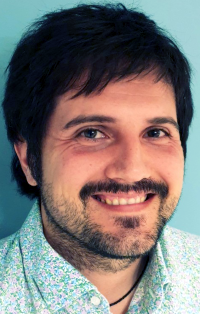Innovative Renewable Energy Business Models That Are Based on the Water-Energy-Food (WEF) Nexus
This session will discuss the technical and financial sustainability of innovative renewable energy business models that are based on the Water-Energy-Food (WEF) nexus approach to boost universal access to energy. The focus will be on the relevance of energy efficiency of the agri-food value chain and how it can drive the transition to a sustainable economic model by exploiting the circular economy potential.
The session will explore how such models are able to pursue high socio-economic, environmental and health benefits as well as contributing to growth and job creation. Innovative and viable business models for green mini-grid projects will be presented. They will demonstrate the urgency to review the entire development process and systems integration to boost the technical and financial performance of mini-grid projects.
Lastly, the potential strength of WEF components to target a 100% RE generation will be discussed. The presentation will be based on case studies and publications EnGreen has dealt with, including:
- Mini-grids in Burundi, Rwanda, DRC, Mozambique
- Case study analysis of 21 RE mini-grids in sub- Saharan Africa: aggregate and correlation analysis of business model indicators
- RE-thinking access to energy business models: Ways to walk the water-energy-food nexus talk in Sub-Saharan Africa
- Applying the water-energy-food nexus approach to catalyse transformational change in Africa

Carlo Tacconelli
Co-Founder and CEO
EnGreen Solutions
Carlo Tacconelli has 14 years of experience in off-grid and grid-connected energy systems. He is co-founder of "Field Studies for Mini-Grid Optimization", an international research group involving MIT, Columbia, Oxford, SUNY, Rome and Pisa Universities. He is also Co-Founder and CEO EnGreen, a network of qualified professionals capable to plan, execute, manage and monitor profit and non-profit high impact projects, as well as coach clients' teams to ensure strategic and operative self-reliance. Sectors of intervention are: Low carbon technologies strategies, off-grid energy systems, water and sanitation, rural development, and capacity building.
Prior to his current position, Carlo was a technical advisor at Absolute Energy for three years, where he was responsible for country management and business development in East Africa (Kenya, Uganda, Rwanda, Zambia, Mozambique). Before that he was managing director at Meridiana Energy for five years, where his focus was on energy efficiency systems and renewable energy grid-connected solutions for business and residential customers, with focus on photovoltaic, wind, solar water heating.
Carlo holdes a Masters Degree in Environmental Engineering with a focus on water, soil and air pollution protection from the Sapienza Università di Roma, as well as a PhD in Energy Engineering from the same institution.
Co-Founder and CEO
EnGreen Solutions
Carlo Tacconelli has 14 years of experience in off-grid and grid-connected energy systems. He is co-founder of "Field Studies for Mini-Grid Optimization", an international research group involving MIT, Columbia, Oxford, SUNY, Rome and Pisa Universities. He is also Co-Founder and CEO EnGreen, a network of qualified professionals capable to plan, execute, manage and monitor profit and non-profit high impact projects, as well as coach clients' teams to ensure strategic and operative self-reliance. Sectors of intervention are: Low carbon technologies strategies, off-grid energy systems, water and sanitation, rural development, and capacity building.
Prior to his current position, Carlo was a technical advisor at Absolute Energy for three years, where he was responsible for country management and business development in East Africa (Kenya, Uganda, Rwanda, Zambia, Mozambique). Before that he was managing director at Meridiana Energy for five years, where his focus was on energy efficiency systems and renewable energy grid-connected solutions for business and residential customers, with focus on photovoltaic, wind, solar water heating.
Carlo holdes a Masters Degree in Environmental Engineering with a focus on water, soil and air pollution protection from the Sapienza Università di Roma, as well as a PhD in Energy Engineering from the same institution.